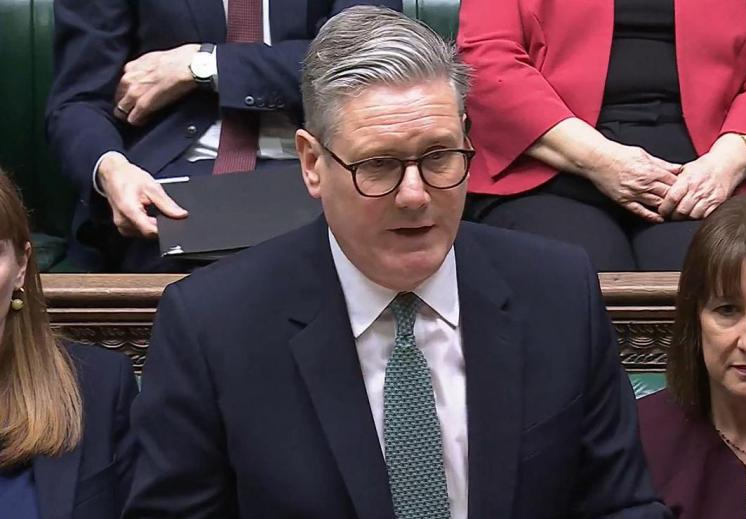
London (Reuters) - British Prime Minister Starmer told parliament on Tuesday (February 25) that Britain will increase defense spending to 2.5% of gross domestic product (GDP) by 2027.
This is because after Trump took office again, European countries are increasingly suspicious of the United States' continued support for European security and are trying to strengthen their own security. The British military said this was the minimum requirement for the UK to seek self-defense and possibly send peacekeeping troops in the event of a ceasefire between Russia and Ukraine.
Starmer said the UK would aim to raise defence spending to 3% of GDP in the next parliament, subject to economic conditions.
He told members of Congress: "The nature of war has changed. This is clear from the battlefield in Ukraine, which is why we have invested in modernizing and reforming our military capabilities. This investment means that the UK will strengthen its leadership in NATO and collective defence in Europe. We should welcome that role."
Bloomberg reported last week that the military had told Starmer he needed to raise the percentage of defense spending to 2.5 percent and then 3 percent by 2030 as soon as possible. Starmer said the government would pay for this by cutting spending on overseas development aid.
Britain currently spends about 2.3 percent of its economic output on defense and would need to increase by about 5 billion pounds to reach the 2.5 percent target.
This goal has long been debated in Congress. Former Conservative Prime Minister Sunak pledged before the last election to hit the 2.5 percent target by 2030, but Labour plans to increase spending on other priorities, such as public services and big infrastructure, and has been more equivocal about boosting defense spending.
However, Mr Trump's return to the White House has made the need for European countries to boost defence spending even more urgent. The US shocked the western world on Monday by refusing to back a Ukrainian-sponsored UN resolution condemning Russia's invasion of Ukraine. Other countries that voted against the resolution included Belarus and North Korea.
Trump earlier said he wanted NATO members to increase their defense spending to 5 percent of GDP, a goal U.S. Defense Secretary Chuck Hegseth called "critical."
Britain is under severe financial pressure, with borrowing costs spiking in a global bond sell-off in January, and markets are particularly concerned about the country's huge debt pile and weak economic trajectory.
Although the Labour government raised more than £40bn in taxes, Chancellor Reeves could still break her own fiscal rules as spending by government departments also increased.

The global electric vehicle market in 2025 is experiencing intense turbulence. Tesla, once a disruptor that reshaped the industry landscape, is now mired in an unprecedented sales crisis.
The global electric vehicle market in 2025 is experiencing …
Recently, Chinese telecom companies Huawei and ZTE signed a…
Recently, according to Xinhua News Agency, Israel's air str…
A strongly worded report from the Equality Trust argues tha…
On November 27, 2025, Alibaba officially entered the global…
The focus of the global financial market in 2025 has always…